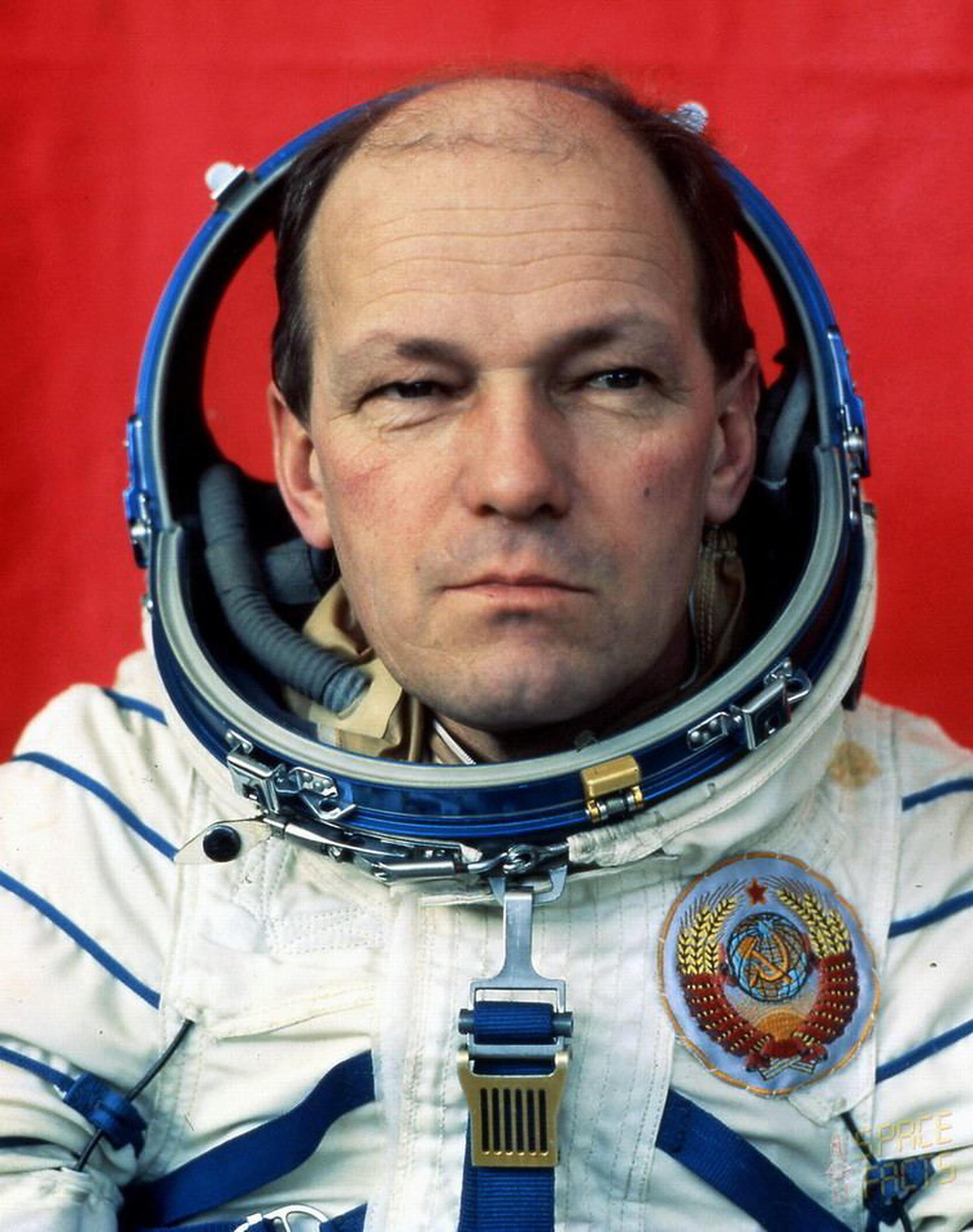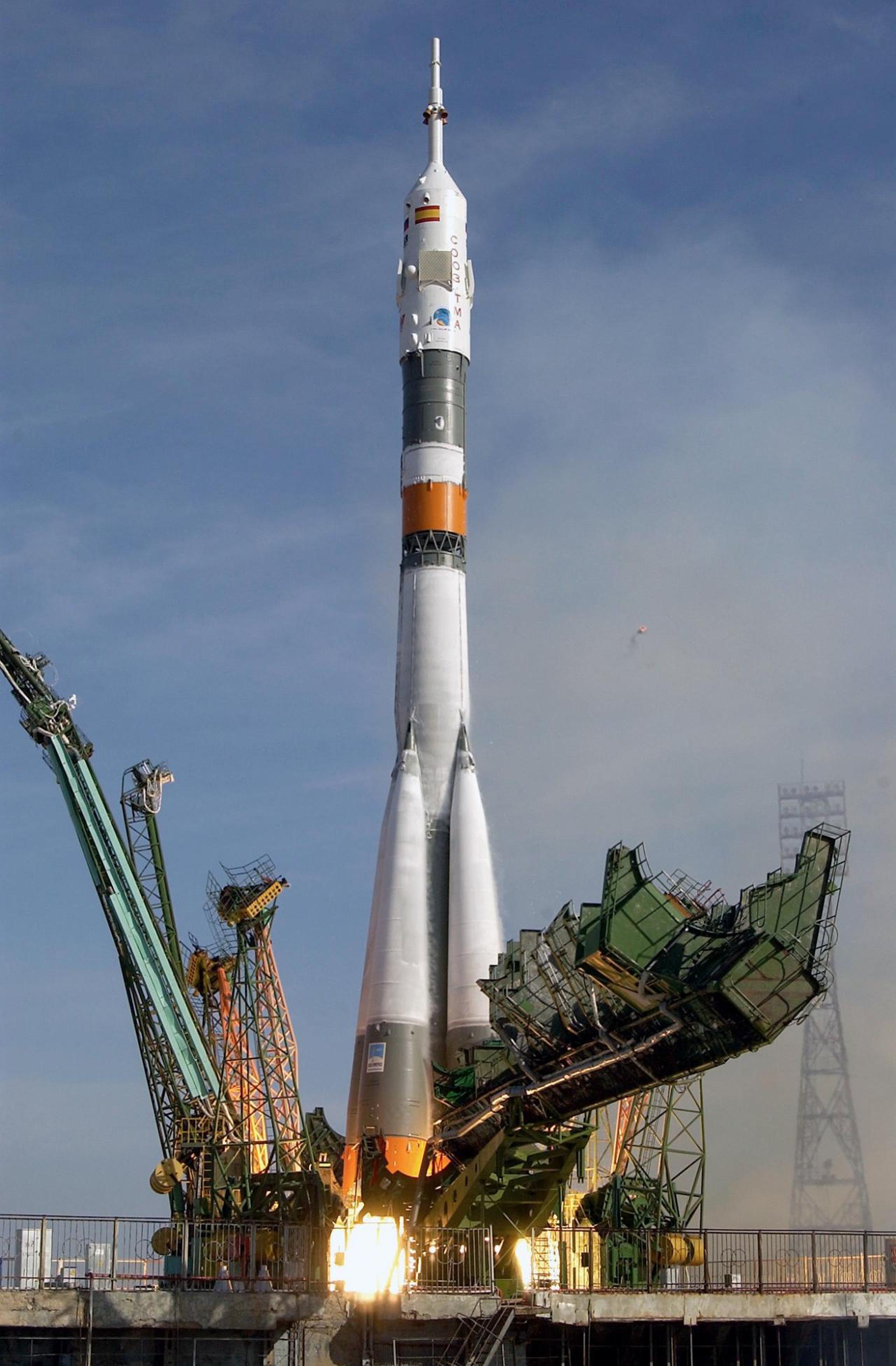Nikolay Rukavishnikov
Russian - (RFSA)
Deceased
Date of Birth: Sept. 18, 1932
Date of Death: Oct. 19, 2002
Nikolay Nikolayevich Rukavishnikov was a Soviet cosmonaut who flew three space missions of the Soyuz programme: Soyuz 10, Soyuz 16, and Soyuz 33. Two of these missions, Soyuz 10 and Soyuz 33 were intended to dock with Salyut space stations, but failed to do so.
Soyuz | Soyuz 10
Russian Federal Space Agency (ROSCOSMOS) | RussiaBaikonur Cosmodrome, Republic of Kazakhstan
April 22, 1971, 11:54 p.m.
Status: Success
Mission:
Soyuz 10 launched on 22 April 1971, 23:54:06 UTC. It carried commander Vladimir Shatalov, flight engineer Aleksei Yeliseyev and test engineer Nikolai Rukavishnikov into orbit. Flight was intended to become the world's first mission to the world's first space station, Salyut-1. Docking was not successful, and crew didn't enter the station. Crew returned to Earth, landing on 24 April 1971, 23:40 UTC.
Low Earth OrbitSoyuz-U | Soyuz 16
Russian Federal Space Agency (ROSCOSMOS) | RussiaBaikonur Cosmodrome, Republic of Kazakhstan
Dec. 2, 1974, 9:40 a.m.
Status: Success
Mission:
Soyuz 16 was a crewed test flight in a preparation for a joint Soviet-US space flight. The mission began on December 2, 1974, 09:40:00 UTC, with a launch of commander Anatoly Filipchenko and flight engineer Nikolai Rukavishnikov into orbit. During their 6-day stay in orbit, crew tested various new and improved systems and elements, including the new docking system. Soyuz 16 ended on December 8, 1974, 08:03:35 UTC with a successful landing.
Low Earth OrbitSoyuz-U | Soyuz 33
Russian Federal Space Agency (ROSCOSMOS) | RussiaBaikonur Cosmodrome, Republic of Kazakhstan
April 10, 1979, 5:34 p.m.
Status: Success
Mission:
Soyuz 33 would have been the eighth crew to dock to the Salyut 6 space station and was meant to visit the long-duration resident crew of the station. The mission began on April 10, 1979, 17:34:34 UTC, launching Commander Nikolai Rukavishnikovv and Research Cosmoanut Georgi Ivanov, the first Bulgarian cosmonaut, into orbit. They were going to dock with the station the next day, but engine failure forced mission to be aborted. The mission concluded with a rough return and landing back on Earth on April 12, 1979, 16:35:40 UTC.
Low Earth OrbitThe Roscosmos State Corporation for Space Activities, commonly known as Roscosmos, is the governmental body responsible for the space science program of the Russian Federation and general aerospace research. Soyuz has many launch locations the Russian sites are Baikonur, Plesetsk and Vostochny however Ariane also purchases the vehicle and launches it from French Guiana.
Falcon 9
Starlink Group 17-25
Space Launch Complex 4E - Vandenberg SFB, CA, USAA batch of 25 satellites for the Starlink mega-constellation - SpaceX's project for space-based Internet communication system.
Falcon 9
Starlink Group 10-36
Space Launch Complex 40 - Cape Canaveral SFS, FL, USAA batch of 29 satellites for the Starlink mega-constellation - SpaceX's project for space-based Internet communication system. First Starlink laun…
Falcon 9
Starlink Group 6-103
Space Launch Complex 40 - Cape Canaveral SFS, FL, USAA batch of 29 satellites for the Starlink mega-constellation - SpaceX's project for space-based Internet communication system.
Falcon 9
Starlink Group 17-13
Space Launch Complex 4E - Vandenberg SFB, CA, USAA batch of 24 satellites for the Starlink mega-constellation - SpaceX's project for space-based Internet communication system.
Falcon 9
Crew-12
Space Launch Complex 40 - Cape Canaveral SFS, FL, USASpaceX Crew-12 is the twelfth crewed operational flight of a Crew Dragon spacecraft to the International Space Station as part of NASA's Commercial C…



